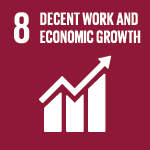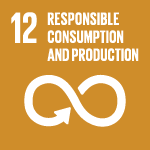Posted in: 05/01/2022
Do you know what Green Employability is and how it relates to purposeful work and new work settings ?
We set up an overview of recent years to explain how the concept of green employability emerged and how it has influenced the generations that are currently in the job market and those to come. Check out!
The last few years have been marked by extremely rapid changes in the job market so that companies could adapt to the limitations imposed by the covid-19 pandemic.
For male and female workers, mainly in the service sector , the moment was one of uncertainty, and many lost their jobs – which began to be gradually recovered, with the reopening of trade.
But for professionals in sectors and companies that were able to migrate their activities to telework (home office or remote work), new configurations were formed.
The telework model led many people to question whether they really wanted to go back to their previous routines , which involved – in addition to the obvious commuting time – other factors that made these people consider staying in remote work as the best solution.
Although, according to the IBGE, 3.8 million Brazilians already worked remotely in 2018 – most of them freelancers or from startup companies and fully online services – the pandemic accelerated the process of companies adapting to telework.
According to a survey carried out by consultancy Betania Tanure Associados (BTA, 2020), 43% of companies operating in Brazil have adopted remote work. The partial work-at-home system , with employees appearing only a few days a week at the official workplace, was adopted by 33% of the companies , according to a study prepared by the Fundação Instituto de Administração (FIA).

With mass vaccination and the official return of all activities, companies began to understand that they should consider the will of their workers (when possible, with new proposals such as the hybrid work regime and the permanent maintenance of telework .
This movement by companies may have been motivated by financial factors , considering that, in some cases, telecommuting has reduced costs for the company – many have even dispensed with their physical locations or considerably reduced the size of their structures.
However, it also obeys the wishes of workers who refused to return to face-to-face work, generating a wave of resignations that affected several countries, mainly the United States , and arrived with force in Brazil in February of this year .
It is worth noting that decisions such as resigning in order not to return to face-to-face work or choosing jobs based purely on personal satisfaction represent a very specific segment of the population , mainly outside developed countries.
For now, only a small portion of the world’s population, which can be considered privileged, can choose to be unemployed or manage to have access to the knowledge and training necessary to migrate to other jobs and areas with ease.
But what we want to highlight here is the change in the point of view of people who currently make up the job market, who are increasingly looking for jobs with similar values and purposes that go far beyond wages and benefits.
Especially when we talk about the younger generations , who are now starting to occupy their spaces – often in professions that didn’t even exist 10 years ago or less – the perception of what a satisfactory job is has considered factors that are very different from those that were required by previous generations.
If many years ago, having stability and being able to remain in the same company until retirement, could be seen as a successful career – even if that was not the dream job – today, personal satisfaction and the possibility of experiencing experiences and new challenges count much more when choosing a profession and maintaining a job.
Research has already shown that Generation Z (people born between 1996 and 2010) and Generation Y (people born between 1980 and 1995 – also known as millennials), for example, prefer being unemployed to staying in jobs that make them unhappy or interfere in their personal lives . Likewise, most young people look for companies that share their personal values – diversity and inclusion were cited as essential.

Currently, just as we have a consumer market that is more focused on sustainability , with consumers demanding socio-environmental responsibility from companies that provide services and goods, we also have a moment in which awareness of work is taking new directions. And that includes both young newcomers and people who were already in the job market.
In addition to a job aligned with their purposes , professionals are increasingly looking for companies and areas that have a positive impact on the world and more humane internal governance policies. Social, environmental and governance issues became a focus for these people.
Especially in matters related to climate and climate change – and the way in which the planet is no longer able to recover from the abusive exploitation and indiscriminate use of its resources – the awareness-raising process has affected professionals, who want to be part of the solution .
According to recent surveys, the search for jobs that have a direct positive impact on the environment or that act directly on it – the so-called “ green jobs ” – has increased in Brazil and worldwide:
Data taken from the article ‘Professionals look at “green employability”’, published by Valor Econômico. Available here .
According to the United Nations Environment Program (UNEP), green jobs are considered to be “work in agriculture, manufacturing, research and development, administration and service activities that make a substantial contribution to preserving or restoring the quality of the environment”. .
In 2020 , the United Nations Refugee Agency (UNHCR) released a report on the green economy and green employment that already demonstrated the tendency of new generations to seek areas and jobs that demonstrate socio-environmental responsibility .
Since then, green employability has been gaining prominence in the world, growing in job offers in Brazil and, recently, it was considered as one of the big bets to help in the post-pandemic recovery .



Sign up and receive our news.